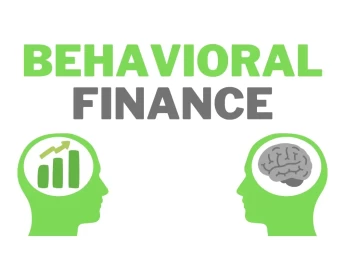The global crude oil market is fast-paced, volatile, and deeply influenced by geopolitical, economic, and environmental shifts. To succeed in this environment, professionals must understand not only how oil is traded, but also how to market it, structure complex contracts, and manage risk with precision.
This course offers a practical and strategic exploration of energy commodities trading, focusing on crude oil and refined products. Participants will gain in-depth knowledge of pricing benchmarks, physical and paper trading structures, risk hedging strategies, and the commercial, legal, and logistical aspects of oil marketing.
Through expert-led sessions, group activities, and simulation-based exercises, attendees will leave equipped to confidently navigate real-world trading operations, enhance sales performance, and mitigate financial exposure in uncertain market environments.
By the end of this course, participants will be able to:
- Understand the structure and dynamics of global crude oil markets.
- Interpret key pricing benchmarks and their market implications.
- Build effective marketing and sales strategies for energy commodities.
- Navigate both physical and financial trading mechanisms.
- Manage price risk using derivative instruments and hedging tools.
- Evaluate the commercial, legal, and operational aspects of oil trade contracts.
- Make data-informed decisions in high-pressure trading environments.
This course is ideal for:
- Professionals in oil and gas marketing and sales.
- Energy commodity traders and analysts.
- Risk and finance professionals in trading environments.
- Legal and compliance officers in energy markets.
- Terminal and logistics managers in refining and shipping.
- Government advisors and regulators in energy trade.
- Professionals transitioning into the oil and energy trading sector.
The course uses a combination of instructor-led sessions, group case analysis, peer learning, trading simulations, and guided discussions. Real-world scenarios, historical market events, and global case studies ensure concepts are grounded in practice, not just theory.
Day 5 of each course is reserved for a Q&A session, which may occur off-site. For 10-day courses, this also applies to day 10
Section 1: Global Energy Markets and Crude Oil Trading Fundamentals
- Introduction to energy commodities and market dynamics.
- Key players and value chain in crude oil and refined products.
- Major benchmarks (Brent, WTI, Dubai): pricing, relevance, and differences.
- Spot, forward, futures, and derivatives explained.
- Macro factors affecting oil prices: geopolitics, supply-demand, speculation.
- Understanding market sentiment and volatility triggers.
Section 2: Strategic Sales and Marketing in Energy Commodities
- Principles of energy product marketing and commercial positioning.
- Designing sales strategies for crude oil and refined petroleum products.
- Buyer segmentation: state-owned, trading houses, refiners.
- Bidding, tenders, and negotiation strategies.
- Marketing contracts: long-term vs. short-term.
- Success factors in building and maintaining buyer relationships.
Section 3: Trading Contracts, Incoterms, and Operational Execution
- Overview of physical trading contracts: term, spot, exchange-traded.
- Legal clauses and key commercial terms.
- Use of Incoterms in energy trading (FOB, CIF, DAP, etc.).
- Shipping, tankers, and storage: physical logistics in oil movements.
- Role of clearinghouses, exchanges, and brokers.
- Regulatory compliance in cross-border energy trade.
Section 4: Risk Management and Hedging Strategies
- Types of risk in energy trading: market, credit, operational, geopolitical.
- Tools and techniques for hedging price exposure:
- Futures.
- Options.
- Swaps.
- Forwards.
- Risk modelling and scenario analysis.
- Managing margin requirements and collateral.
- Building an internal risk control framework.
Section 5: Simulation Workshop and Market Response Tactics
- Live trading simulation exercise with real-time scenarios.
- Strategy building under price shocks and macro news.
- Case review: major historical oil price crashes and rallies.
- Stress testing trading decisions under uncertainty.
- Group activity: managing a crude oil portfolio during market disruption.
- Wrap-up and application planning for your own trading environment.
Upon successful completion of this training course, delegates will be awarded a Holistique Training Certificate of Completion. For those who attend and complete the online training course, a Holistique Training e-Certificate will be provided.
Holistique Training Certificates are accredited by the British Accreditation Council (BAC) and The CPD Certification Service (CPD), and are certified under ISO 9001, ISO 21001, and ISO 29993 standards.
CPD credits for this course are granted by our Certificates and will be reflected on the Holistique Training Certificate of Completion. In accordance with the standards of The CPD Certification Service, one CPD credit is awarded per hour of course attendance. A maximum of 50 CPD credits can be claimed for any single course we currently offer.
- Course Code IND01 - 151
- Course Format Classroom, Online,
- Duration 5 days








